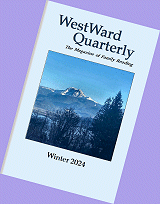The Search for Meaning
Recent Workbench articles have dealt with the form and structure of poems. In this article we will explore the essence of poetry, and why we write. From limerick to elegy, from slice-of-life to deep and reflective, poetry fulfills a desire to communicate that which transcends ordinary prose. Each type has its place; each explores moods, emotion, places, circumstances, laughter, sorrow, beauty or pain.
Poetry in the last few centuries has wandered down a winding pathway — love of beauty, nature, creation, the overly sentimental of the 1800s, to profoundly reflective, and then to free verse and the wildly experimental, and the “slice of life” poetry that sometimes portrays crudity, perversity and violence, to the “stream of consciousness” poetry which flows out in a torrent of words that may have meaning to the writer but leave the reader feeling like a reluctant visitor to a place he really didn’t want to go to.
Which brings us to the question: Could there be more purpose to these words that spill out on pages than merely our own personal satisfaction, therapy or reward? If we have been given this “gift of words” how then should we use it? Is this voice inside us that seeks expression really in a search for meaning — in our own lives, the lives of others — and our purpose in the universe?
In the words of William Faulkner, in a speech upon receiving the Nobel prize in 1950, “It is his (the poet’s, the writer’s) privilege to help man endure by lifting his heart, by reminding him of the courage and honor and hope and pride and compassion and pity and sacrifice which have been the glory of his past. The poet’s voice need not merely be the record of man, it can be one of the props, the pillars to help him endure and prevail.”
That is our goal at WestWard Quarterly: to publish redemptive poetry that calls us to a higher level of meaning. We live in a perilous and complex world where many voices are demanding to be heard. The old familiar landscape often seems to be receding while new and uncertain vistas are opening up. One of the dangers of this new world is that we will lose our bearing and cease to speak of the courage and honor and hope and pride and compassion and pity and sacrifice that have been the glory of the past. Redemptive literature urges us to be explorers in the realm of truths that trancend the current culture’s frivolity.
Happy Writing!
The Editor
©2006 Laudemont Press


